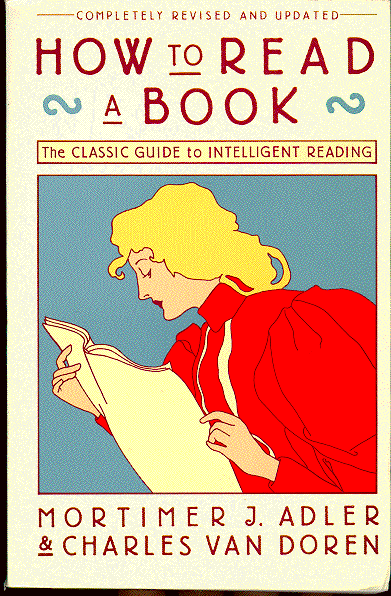This is the year I regain my attention span through reading.
I've always been a reader--I even earned a degree in literature two decades ago. Over the past several years, I noticed a change in my reading habits. I began reading
more blogs, news, and light "tricks and tips" related to my profession, and
less fiction, poetry, and challenging nonfiction. As my reading habits changed, I observed troubling changes in my thinking patterns and attention span too. Deep analysis and divergent thinking became tedious. I found myself thinking in terms of quick fixes and bullet lists,
- which
- isn't
- necessarily
- good.
The catalyst for change came during winter break last year. We planned a family trip to visit the in-laws. Knowing that I'd have plenty of time to read (and that the internet connection would be flaky), I threw Mortimer Adler's
How to Read a Book into my backpack. I devoured that book in a week. The message was simple and challenging:
Read good books well.
That's my mantra this year. I determined to read challenging books and to read them rigorously.
But what to read? I set a goal to read five epic poems:
The Iliad, The Odyssey, The Aeneid, The Divine Comedy, and
Paradise Lost. (Links are to the translations I'm reading, except for
Paradise Lost which was written in a language I happen to know.) To keep from burning out on the genre, I decided to take a month or two for each book and intersperse some other edifying books among them for variety.
This blog is the book-by-book record of my reading. I'll post what I'm reading, some general impressions, and a very brief review (maybe a haiku). I welcome your reading suggestions, questions, and encouragement. Feel free to leave comments, subscribe, and share on your social networks. Just don't let it take you away from your reading!





